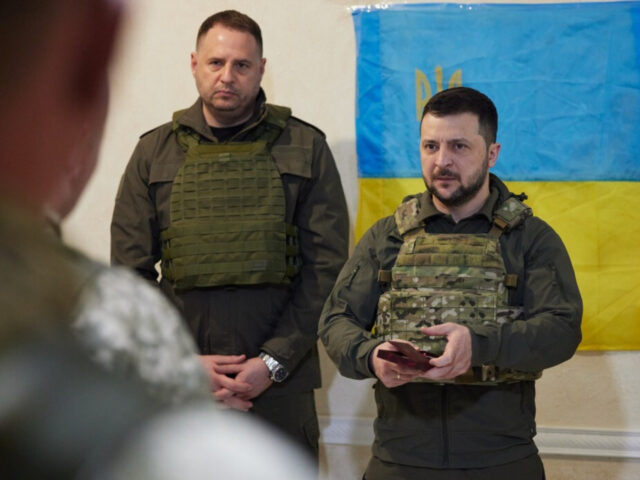Ukrainian President Volodymyr Zelensky signed a bill on Tuesday to lower the conscription age to 25 in a bid to expand the ranks of his military ahead of what promises to be another tough year defending against Russia.
With the Spring Thaw quickly approaching, fighting on the ground in the war between Russia and Ukraine is likely to again intensify. Last year, Kyiv launched a highly touted yet ultimately unsuccessful “counter-offensive” attempting to recapture lands seized by Moscow.
This year, with dwindling manpower and alleged shortages of weapons and munitions, Ukraine appears content with digging in, while Moscow appears to be set to launch another offensive to seize more territory.
To stave off Putin grabbing more of his country’s land, Zelensky signed a bill lowering the conscription age from 27 to 25 on Tuesday, state media Ukrinform reported.
The Ukrainian leader had long been reticent to sign the bill, which had been on his desk since last May, over the controversy of forcing young people — the nation’s future — onto the front lines, and over fear that it could signal to the country a desperation or possible defeat, which he assured the public would never happen.
While any Ukrainian citizen above the age of 18 can volunteer to fight in the military, conscription, with the age previously set at a minimum of 27 years old, had left most young men — many of whom are students — free from being forced into battle. Even still, all men between the ages of 18 and 60 have been barred from leaving the country under martial law restrictions unless they become needed in the war.
This has meant that the average age of soldiers fighting for Ukraine has reportedly been around 43 years old. Nevertheless, around 650,000 men of fighting age are known to have fled the country over the past two years, according to a report from the BBC.
Ukraine has also faced several high-profile corruption scandals, in which officials were charged for allegedly accepting bribes in exchange for allowing mostly men to avoid conscription into the military with forged certificates of exemption.
Zelensky retains his position of working towards absolute victory, where all of Ukraine’s United Nations-recognised territory, including those parts such as Crimea which have been occupied by Russia for over a decade now. While there has been occasional suggestion of a negotiated end to the war, and developments like unsucessful counteroffensives and moving towards a position of exhaustion of the conscription recruitment pool may push events in that direction, it remains the case both sides have mutually exclusive war aims.
After securing another six years in power last month, Putin suggested that a possible end goal for the conflict for his government would be the formation of a “cordon sanitaire” buffer zone between Ukraine and Russia to prevent Kyiv from launching attacks on Russian soil. An ironic enough position given Moscow drew first blood in the conflict, but one that may seem imperative now as Ukraine launches deeper and deeper attacks against Russia proper to grind their enemy down.
It is unclear if Putin believes this would require more Ukrainian territory would need to be seized to enact such a plan or if he envisages a Korean-style demilitarised zone being put in place.

COMMENTS
Please let us know if you're having issues with commenting.